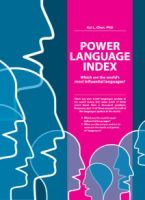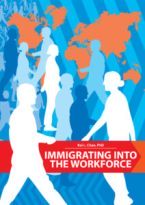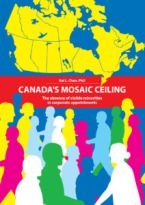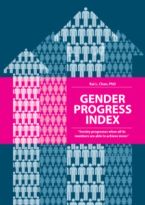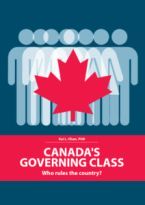
Our peculiar northern neighbors
Canadians celebrate Thanksgiving Day in October. How many of you knew that? If you are like most Americans, then you are probably unaware of this fact. Indeed, ignorance of Canadian matters is an acute problem in the United States. According to a dated CNN poll, only two percent of Americans know the name of the Canadian prime minister.
Why are Canadians invisible in the eyes of Americans? It seems rather strange since Canada is a prominent member of the international community — e.g., it is a member of the G7 countries. It is also the second largest country in terms of land mass. And being just north of the United States, it’s hard to miss on the map, although one in four Americans did, according to the same CNN poll. Also, if not for Canada, how would Americans satisfy their craving for maple syrup-coated pancakes on a Sunday morning?
Canadians are everywhere. They live among you. They are your classmates, your professors and even ‘Prince’ columnists (gasp!). They are also scapegoats for life’s little annoyances — “Blame it on Canada!” But for all the jokes and rivalry, Canada remains a mystery to most. Yet oddly, this phenomenon has become a point of pride for many Canucks. How else can one explain the popularity enjoyed by a Canadian show called “Talking to Americans,” whose entire premise is to go around asking Americans questions about Canada and then deriving a chuckle from their (incorrect) answers?
Canadians like to tell Americans that they are this country’s largest trading partner. They also point out other notable facts, such as that it was Canada who took in all the U.S.-bound air traffic when American airspace was closed following the 9/11 attacks, or that the only foreign army to ever set foot in the United States was Canadian (shucks, they even set aflame the Congress building). The last point is one made just to roil Americans; after all, no one wants to admit being trounced by kooky peace-loving Canadians.
Nevertheless, Canadian-American relations have recently soured, most notably over Canada’s refusal to join the war in Iraq and divergence in opinions over such matters as decriminalizing marijuana. This is rather unfortunate. In the end, we are like Siamese twins conjoined by an 8,893-kilometer border — that’s 5,555 miles (wink). So, no matter how much we may disagree over politics, we need to tolerate one another. Thus, to keep good spirits between us, I suggest that we engage in building bridges. Go ahead ye Americans; go hug a Canadian today!
But, as you might ask, how is it possible to identify Canadians among you? Well, there are certain telltale signs. The most obvious is if he has a grin punctuated with missing teeth, or if she sweeps (“sweeeep!”) the ice patch on the sidewalk whenever someone passes by. Fashion is another identifying factor. They like to wear clothes from Roots and Mountain Equipment Co-Op (MEC) and sew a maple leaf on their rucksack.
Beyond appearances, their mannerisms are distinctive. Many have an uncontrollable urge to fill in the missing “u” in words such as labo(u)r and colo(u)r. Lastly, they also have an odd accent; you may even hear one say “eh” and “aboot” when her guard is down.
So the next time you spot one of these exotic creatures in the classroom or on the Street, go ahead and hug her. We are not all that different, but different enough at the same time. Most importantly, by virtue of your proximity to us, maybe some of our kooky Canuck character will rub off on you, and you might begin seeing the virtues of universal healthcare, same-sex marriages and a political culture that openly challenges its leaders. Heck, if you’re really nice to us, we might even share with you some of our flu vaccine! Government-sponsored healthcare doesn’t sound so bad now, eh?
P.S.: If you are curious to know, the Canadian prime minister’s name is Jean Poutine. He is most famous for having won a “double-double” (winning a majority in both chambers of the parliament and the senate) against Tim Horton in the 2000 federal election. His slogan in that campaign was “Roll up the rim to win!”
Kai Chan is an economics graduate student from Toronto, Canada.
The Daily Princetonian: “Our peculiar northern neighbors”
Published: Wednesday, November 3rd, 2004


